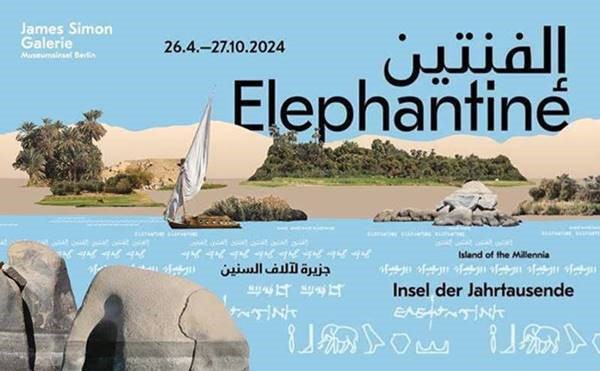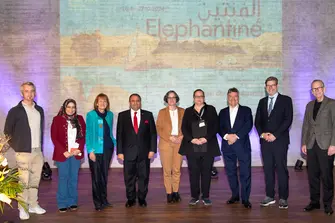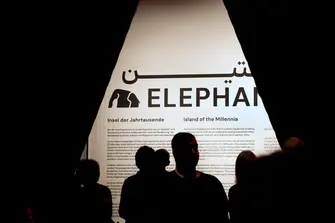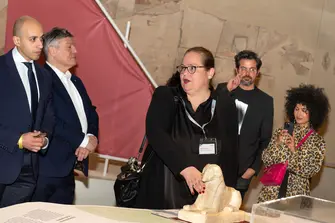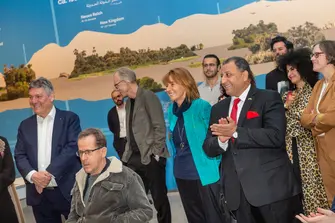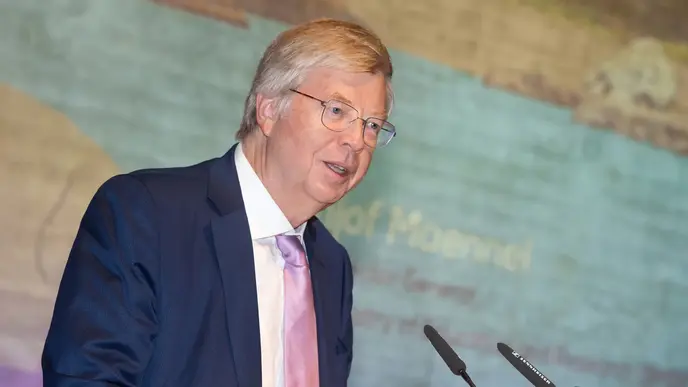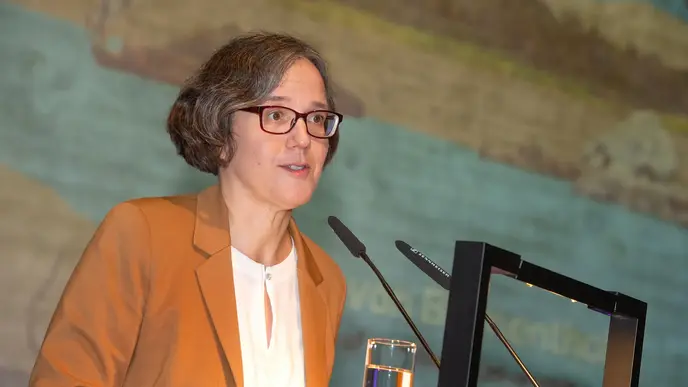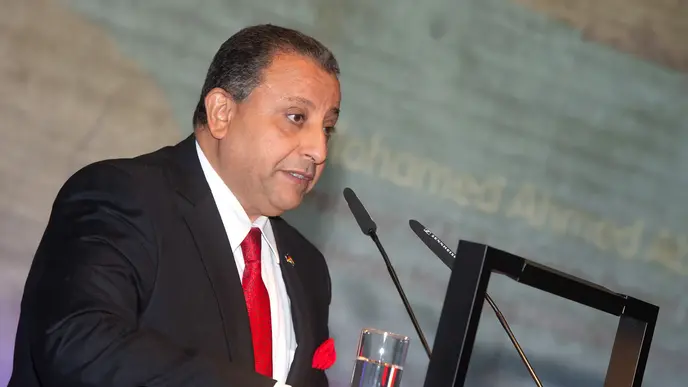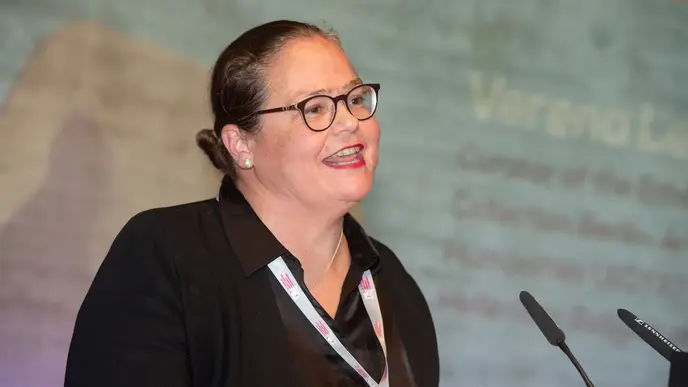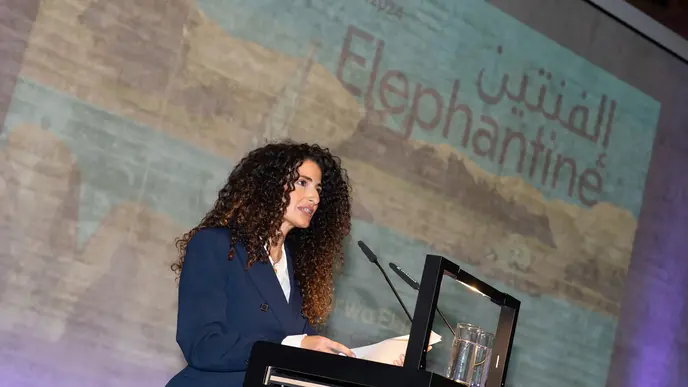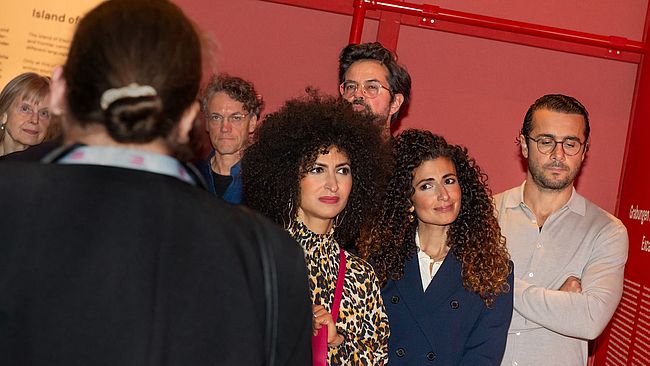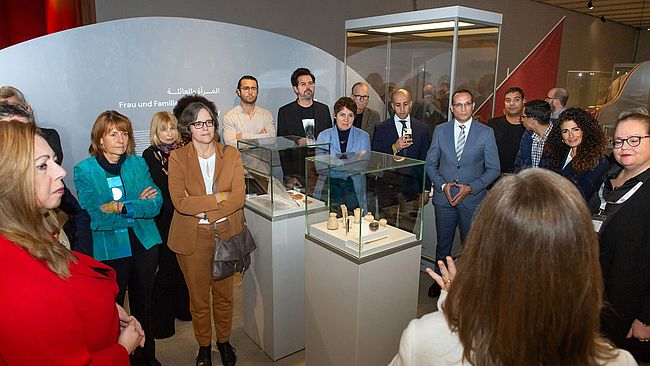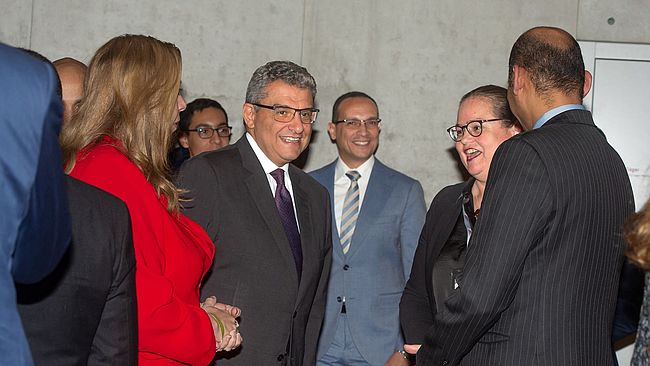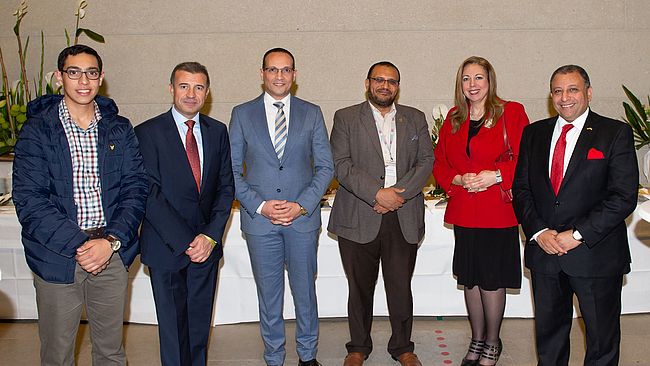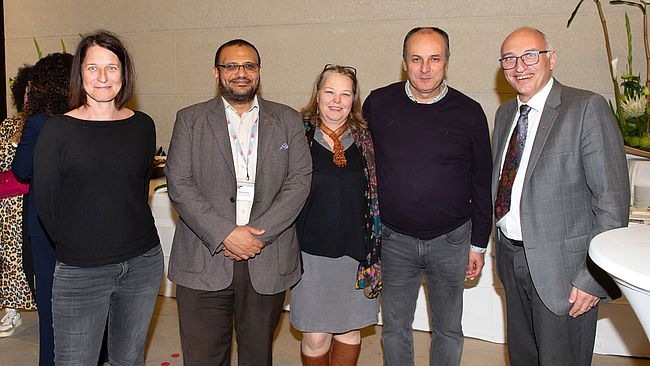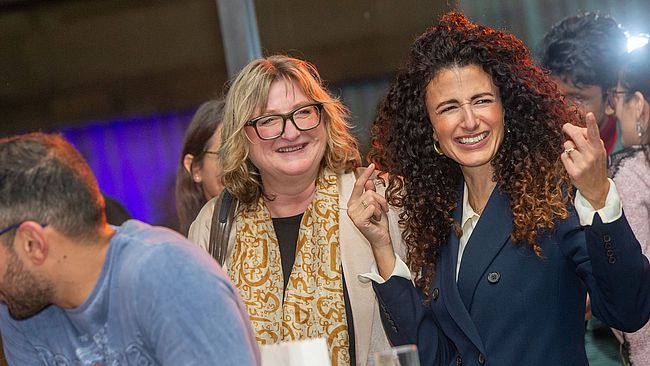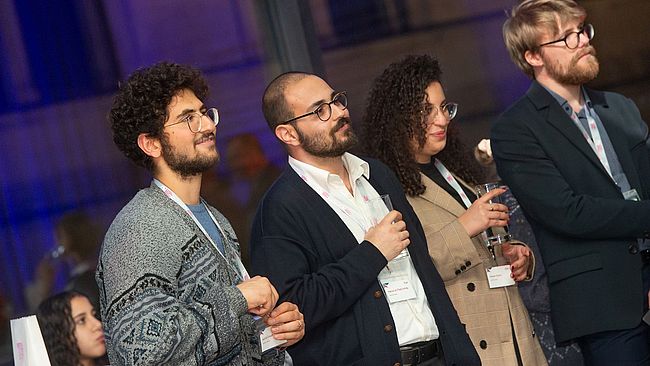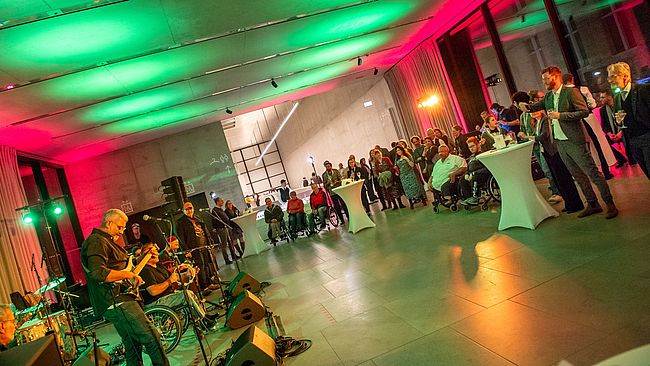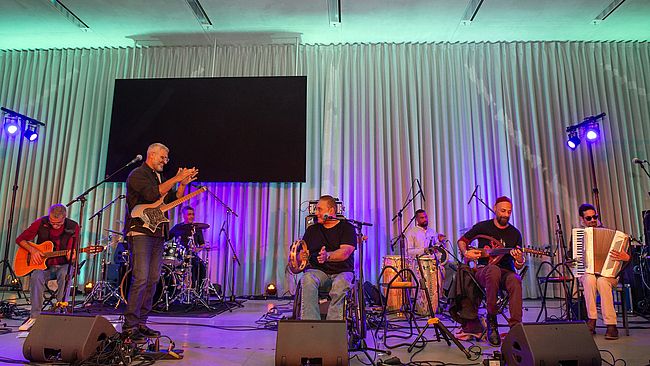Finissage of the Exhibition 'Elephantine – Island of the Millennia'
What can we learn from a cosmopolitan society in Antiquity? How can the lessons of the past shape a more inclusive world today? The unique finissage of the acclaimed exhibition ‘Elephantine - Island of the Millennia’ offered an opportunity to revisit the island's story one last time, with ancient voices from Elephantine, special guided tours with contemporary perspectives and reflections on the exhibition’s lasting impact.
On 25 October 2024, the James-Simon-Galerie on Berlin's renowned Museum Island hosted the special finissage of the exhibition ‘Elephantine. Island of the Millennia’, celebrating the rich history and cultural significance of the Nile island, a key site of ancient Egyptian civilization and home to a diverse, multilingual, multicultural, and multi-religious population.
This unique event brought together more than 200 experts, scholars, cultural representatives and enthusiasts to reflect on the exhibition's themes and its topicality, and to celebrate the joint endeavours of both Egypt and Germany.
Bringing the Ancient World of Egypt Closer to Berlin and the World
High-ranking stakeholders from politics, culture, diplomacy and science warmly welcomed the interested audience to the festive ceremony: Frithjof Maennel, Deputy Director General, Federal Ministry of Education and Research (BMBF), H.E. Mohamed Elbadri, Designated Ambassador of the Arab Republic of Egypt in Berlin, Prof. Dr. Julia von Blumenthal, President of Humboldt-Universität zu Berlin, Prof. Dr. Mohamed Ahmed Abdellatif Ibrahim, Dean of the Faculty of Tourism and Hotels, Mansoura University, and AGYA Principal Investigator Prof. Dr. Verena Lepper, Curator of the Exhibition, Egyptian Museum and Papyrus Collection Berlin, Director of the Institute of Near Eastern and Hellenistic Religion at the Humboldt-Universität zu Berlin. Each speaker provided insight into the importance of the exhibition and its broader cultural and diplomatic relevance, highlighting the deep-rooted historical ties between Egypt and Germany.
Echoes of Elephantine
A central feature of the event was a live-performance reading of ancient Egyptian texts from and about Elephantine, bringing the island's history to life through its own words. Egyptian-German moderator and journalist Marwa Eldessouky recited these fascinating texts from the fields of mathematics, astronomy, grammar, law, and medicine for the audience, and showed how ancient Egyptians treated lung diseases, and sought love through oracles.
From Audio Journey to Time Travel: Contemporary Arab-German Perspectives
After this immersive experience of the audio journey, the visitors were further invited to a time travel by taking “A Walk on Elephantine – From Past to Future”. Special presentations elaborated on the exhibition’s manifold topics from contemporary Arab-German perspectives and discuss what the history of this cosmopolitan island can teach us today. The guides Verena Lepper (Egyptology, Berlin) and Dr. Rebekka Pabst (Egyptology, Berlin), complemented by AGYA members Dr. Amro Ali (Sociology, Cairo), Dr. Dawud Ansari (Economics, Berlin), Dr. Ghada Mohamed (Egyptology, Cairo), Dr. Lena-Maria Möller (Middle Eastern Law, Hamburg), Prof. Dr. Suhair Sunoqrot (Pharmacy, Amman), Dr. Adam Talib (Arabic Philology, Cairo), and distinguished guest speakers Dr. Eid Mertah (Conservation, Cairo), Dr. Ahmed Kamal Mamdouh Mohamed (Arabic Philology, Cairo) and Prof. Dr. Heinz-Eberhard Mahnke (Physics, Berlin), shared their diverse perspectives.
The tours highlighted the island's pivotal role in trade, governance, and cultural transmission in the ancient world, setting the stage for a broader reflection on how historical narratives shape contemporary identities. The scholars’ discussions encompassed pressing issues such as the role of heritage in contemporary Arab societies, the influence of cosmopolitan societies on family law in the Arab world, the use of natural products in ancient and today’s medical approaches, and the ways in which modern technologies – such as digital archaeology and linguistic preservation – are helping to safeguard and reinterpret the ancient world for future generations.
The inclusion of such diverse academic disciplines within the tours reflected a holistic approach to understanding not only the significance of Elephantine, but also its model character of a cosmopolitan society with a range of languages, cultures and religions existing side by side. By blending archaeology with contemporary cultural, social, political, economic and legal analysis, the AGYA members and distinguished guests effectively bridged the gap between ancient history and the future of Arab-German scholarly dialogue.
These exclusive guided tours formed an appropriate end to the exhibition, which had already captivated international audiences with its rich array of outstanding artefacts from Berlin’s collections alongside objects from around the world. The tour’s blend of historical analysis with forward-thinking perspectives from Arab-German scholars left the visitors with a sense of the island's continuing importance – not only in understanding ancient Egyptian civilization but also in connecting past legacies to future possibilities.
The evening concluded with a special concert of the most famous Egyptian rock band Wust el Balad creating an atmosphere that emphasised the shared cultural heritage and provided a cheerful finale to the finissage. The event was a powerful reminder of the value of cross-cultural scholarship, offering a rich and inspiring exploration of how history, heritage, and modern intellectual exchange can inform each other to create a deeper understanding of both the past and the future.
Date and Venue
25 October 2024
James Simon Gallery, Museumsinsel Berlin, Germany
